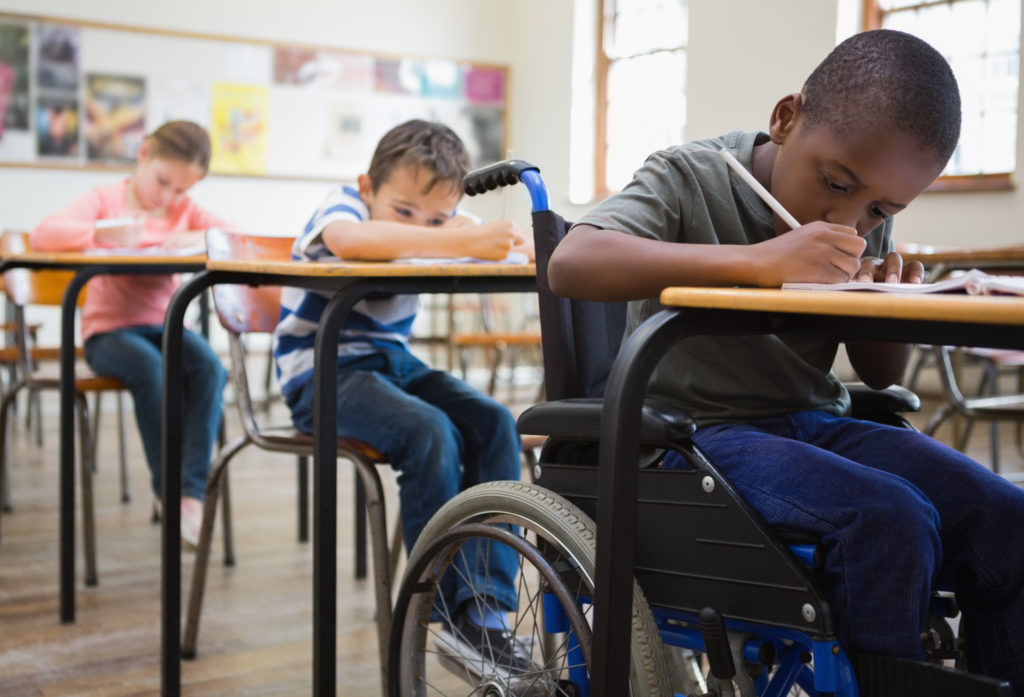
Families with Disabled Children
Being disabled means not being able to do things that other person of the same age can do, like:
• A person who cannot move his legs because of an injury (his legs are paralyzed) is disabled.
• A person who cannot hear what the teacher is saying because he has a hearing loss is also disabled.
• A person may have an intellectual disability which means they learn slowly and may have trouble managing many things that are needed for everyday life.
• A person may have a learning disability.
In these examples, although they are each disabled, their disabilities have very different effects on their lives:
• A person with paralyzed legs might be able to move around in a wheelchair so that he can play some sports, while he might be just as good at doing spelling tests as you are, and maybe he is really good at wheelchair sports.
• A hearing aid might help the person with a hearing loss do everything others can do.
• A person with an intellectual disability may need a lot of support in many areas of his life.
• A person with a learning disability may need extra support at school.
Most people who have a disability will be able to do lots of ordinary things, and have lots of fun and enjoyable times, while some of the time, life can be unhappy and difficult for them. There are lots of different types of disability, such as blindness and autism.

Sometimes people are unkind when they are faced by someone or something different. You may need to help your sibling cope with this. If you have a brother or sister who has a disability, then there are things you can do to help that person:
• Find out about the disability and work out how it affects your sibling. Your parents will be able to help you with this, and always ask your sibling.
• Learn how to help look after him.
• Ask mum or dad to role-play by asking you questions that people might ask you about your brother or sister, and work out what answers you can give. This way you will feel more confident and you will not be stressed out by questions from people who don’t understand your sibling’s disability, especially some silly questions.
• Play and talk with your sibling.
• Encourage your sibling by praising what they can do.
• Help by showing your sibling how to do things.
• Encourage him to do things for himself, if possible.
• Encourage him to do things for others, like doing chores around the house, if he can.
Living with a sibling with a disability can be hard at times, especially if mum and dad have to spend a lot of time with doctors and at hospitals. A lot of children who have a brother or sister with a disability grow up to be kind and much-loved people because they learn to be kind and look after others when they are young.
